
Daughter Chaturi
:-Sunday, November 30, 2014
Maithripala Sirisena, the man who is set to challenge incumbent President Mahinda Rajapaksa at the January poll, once spent more than 18 months in jail over suspected links with the Janatha Vimukthi Peramuna (JVP)– a link that was later proved, he did not have.
He joined the Sri Lanka Freedom Party (SLFP) while he was still in school but Mr. Sirisena’s long and chequered political history is not widely known to the public. Until he came forward as Mr. Rajapaksa’s main challenger, he did not project himself as a leader or seek the limelight.
Mr. Sirisena is a self-made politician and a family man, but one who has successfully kept his private and public persona apart. He has avoided grooming his children or family members to follow in his political footsteps.
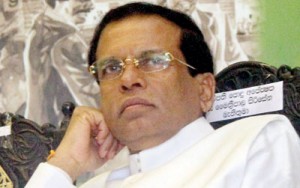
“We lived in Polonnaruwa even after my father became an MP and later a Minister and we have not enjoyed any special privileges,” said Dharshini Chaturika, Mr Sirisena’s eldest daughter. “Even though my father was a busy person, he always took time off to attend parent-teacher meetings when we were in school and to attend to our family needs.”
“When my father walks into the house, he is no longer a politician,” she reflected. “He is a father and a husband and we do not discuss politics when we are together as a family.”
Mr. Sirisena’s rise up the political ladder was not an easy one. After the youth insurrection of 1971, he was arrested on suspicion and was jailed for more than one and a half years even though he had no links with the JVP. After his release, he returned to active politics, undeterred by the fact that he was wrongfully jailed while the SLFP-led government was in power.
Hailing from a family of farmers, Mr. Sirisena was born on September 3, 1951 and was named Pallewatta Gamaralalage Maithripala Sirisena. He was raised in the agricultural heartland of the country, in the Polonnaruwa District. It was whilst he was still a schoolboy at Royal College, Polonnaruwa that he began to take an interest in politics and became the Secretary of the SLFP Youth Organisation.
His first job was as a Co-operative Supplies Officer in 1974. He also served as a Grama Seva Niladhari until 1978 but due to changes in the political climate and due to various forms of harassment he quit his work and took to full-time politics. From there on he made headway in the ranks of the SLFP, being elevated to the post of SLFP District Secretary for Polonnaruwa in 1979. This appointment also opened the door to many training programmes conducted overseas.
By the late 1970s, the United National Party (UNP) led by J.R.Jayewardene was in power with a two thirds majority in Parliament. The overwhelming support for the UNP meant that there were many who engaged in crippling whatever remaining opposition there was from other parties. With the SLFP having to bear the brunt of such attacks, the task fell on young party activists such as Maithripala to resurrect the SLFP.
His hard work paid off when he was appointed the SLFP’s All Ceylon Youth Wing secretary and in 1983 as its chairman.
Due to the commitment shown to the SLFP, he was made a member of the decision-making body– the Central Committee–of the SLFP. The then leader of the SLFP Sirimavo Bandaranaike, having realised the potential of the young man also appointed him an organiser for the Polonnaruwa electorate.
With the onset of the terrorist activities of the LTTE, the Sirisena family was among hundreds of families living in the Polonnaruwa District who were under constant threat of attacks. “We had to shift homes several times due to threats of LTTE attacks, but we lived in the area despite all the hardships,” Chaturika said.
Mr. Sirisena succeeded in entering Parliament by winning a seat in the 1989 general elections; but it was baptism by fire for him, coming at a time when a second JVP-led youth insurrection was in full swing and choosing to contest an election was then akin to signing one’s own death warrant. Even though the UNP was in power, Maithripala raised his voice on various issues affecting the people.
1994 was a watershed year for the SLFP. After enduring 17 years in the Opposition, the SLFP was swept into power with a landslide victory for Chandrika Kumaratunga. Maithripala was rewarded with the post of Deputy Minister of Irrigation in the new Government. In 1997 he was promoted to the rank of a Cabinet Minister with the portfolio of Minister of Mahaweli Development. In 1997 he was also made the Deputy General Secretary of the SLFP and in June 2001, he was appointed to the prestigious post of General Secretary of the SLFP, a post he held till he resigned two weeks ago.
After the SLFP-led United People’s Freedom Alliance (UPFA) formed the government in 2004 under the leadership of President Mahinda Rajapaksa, Maithripala was appointed the Minister of Mahaweli and Rajarata Development and in 2006 in a Cabinet reshuffle as the Minister of Agriculture, Irrigation, Mahaweli Development and Environment. In 2007 he was appointed Agriculture Development and Govi Jana Services Minister. That same year he was also appointed Leader of the House.
Mr. Sirisena was re-elected in the 2010 parliamentary elections and appointed Minister of Health.
Despite the numerous Cabinet portfolios he has held, Mr.Sirisena has avoided bringing in his family members to positions in Government. “He was firm that none of us should take up posts such as being his coordinating secretary or personal secretary like other politicians’ children do. We led our own lives away from the hustle and bustle of politics even though our father held a high position in the Government,” the daughter said.
His decision to quit the government had the solid backing of his family members. “We told him we are prepared to die with him. He feels that if the direction in which the country is heading is not changed, the country will become like a mass of land belonging to one person,” Chaturika said.
Mr. Sirisena is married to Jayanthi Pushpakumari and is the father to two daughters and a son. On November 21, Maithripala resigned from the Cabinet and announced that he would be the Opposition Common candidate at the January 8 presidential poll.
 Rs. 600 billion pours into Hambantota development with more to comeDecisions made in Colombo, while few know the whole pictureGovt. not providing sufficient info to local businessmen
Rs. 600 billion pours into Hambantota development with more to comeDecisions made in Colombo, while few know the whole pictureGovt. not providing sufficient info to local businessmen
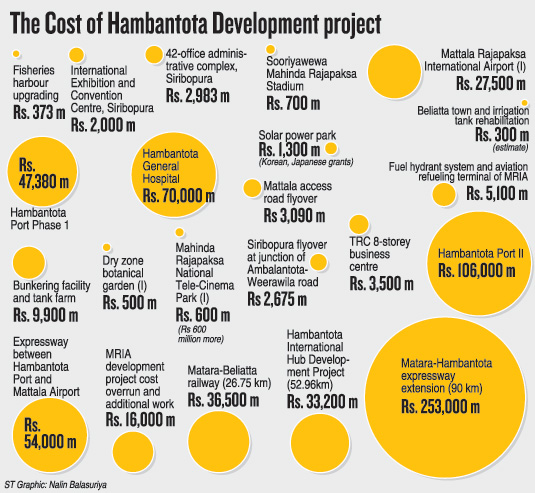








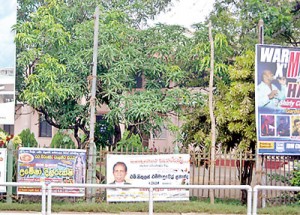 “We feel our request is quite enough. If the people involved have any ethics and morals they will adhere to our request. And we have faith that they will,” Fr Gamini said.
“We feel our request is quite enough. If the people involved have any ethics and morals they will adhere to our request. And we have faith that they will,” Fr Gamini said.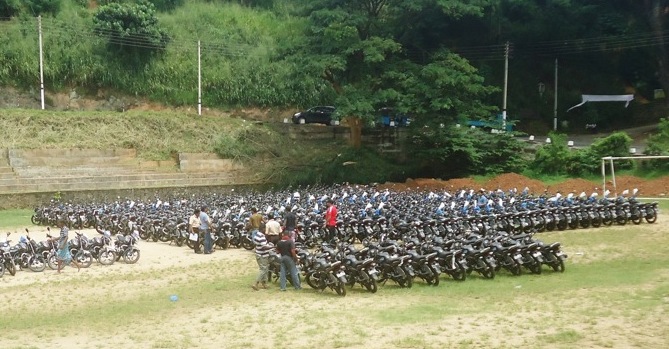

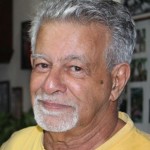




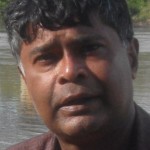

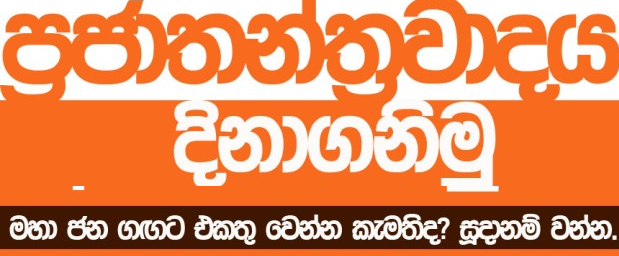


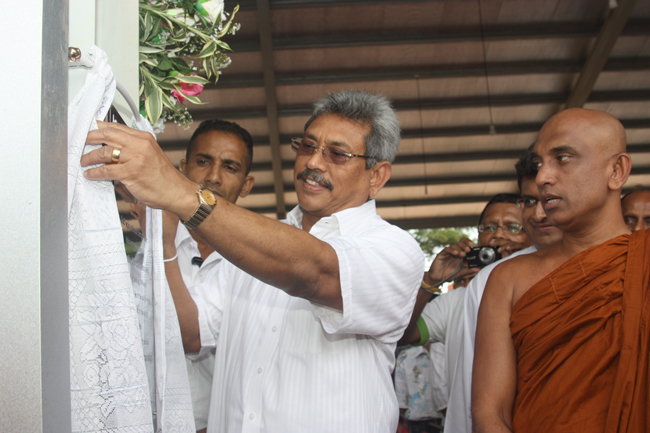

 A meeting of thugs took place at Deer Park Hotel in Medirigiriya yesterday (29) to discuss how they should disrupt and attack the function in Polonnaruwa today to welcome common opposition candidate Maithripala Sirisena.
A meeting of thugs took place at Deer Park Hotel in Medirigiriya yesterday (29) to discuss how they should disrupt and attack the function in Polonnaruwa today to welcome common opposition candidate Maithripala Sirisena.


